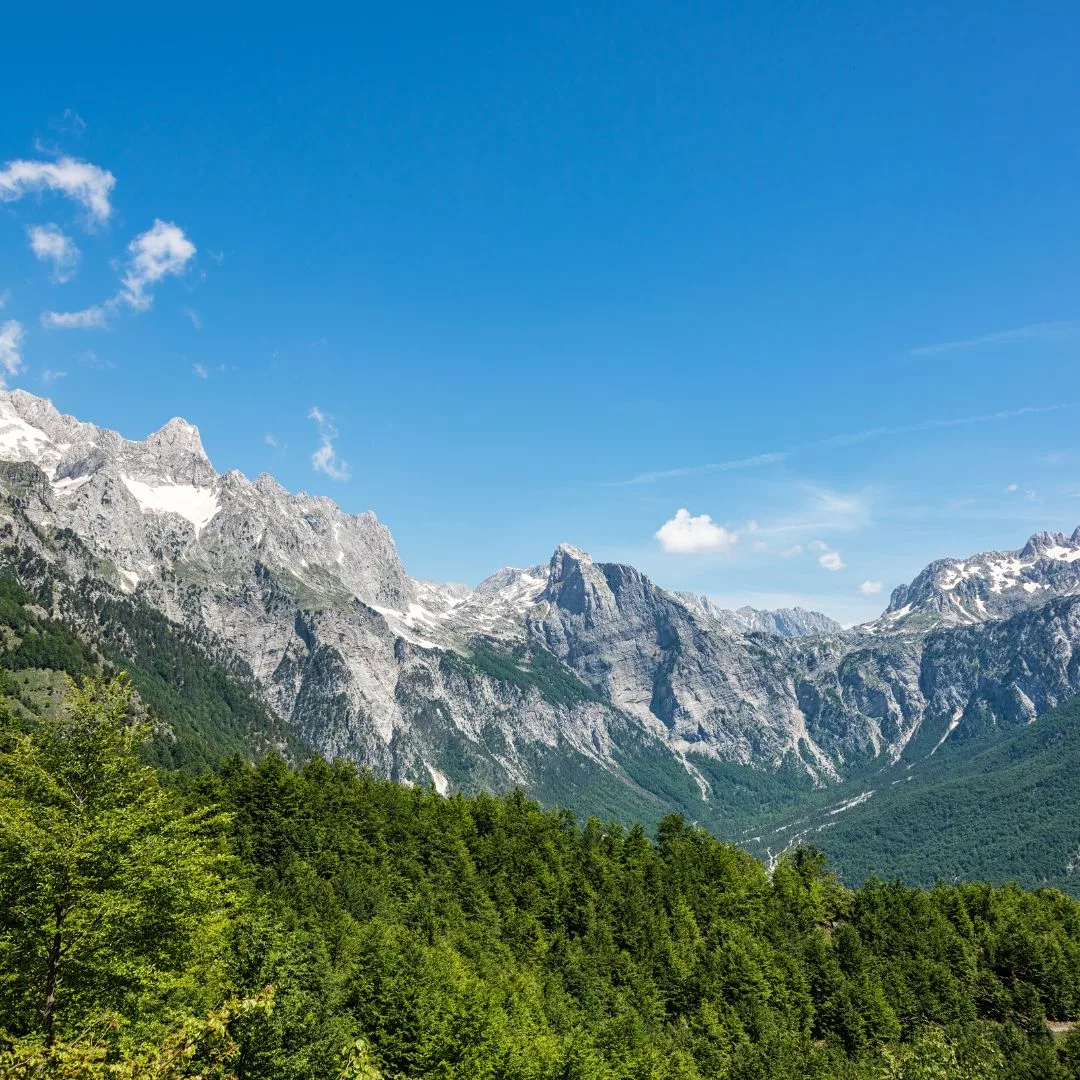Albania’s Climate Course: Progress, Obstacles and Future Strategies
by Sofia Shabafrouz, EUKI / GIZ
Like its Western Balkans counterparts, Albania is grappling with the complex challenges of climate governance. While strides have been made towards formulating policy and establishing adaptation measures, significant hurdles remain. This article – based on an interview with Zana Vokopola, Executive Director of Albania’s Urban Research Institute – delves into the positive developments, lingering obstacles and essential next steps on Albania’s climate journey. It is Part 4/7 in our series of articles on the six Western Balkans countries and their climate governance efforts.

The Urban Research Institute (URI) is an Albanian non-governmental organisation actively engaged in climate-related research and initiatives. URI employs its expertise in environmental services and strategic planning processes to address pressing climate challenges and promote sustainable urban development. With her two decades’ experience in project management and local government capacity-building, URI Executive Director Vokopola shares her perspective on Albania’s progress to date on the climate governance front.
Positive developments
According to Vokopola, Albania has made significant headway on climate policy in the past decade and recent years, particularly in terms of data collection, analysis and policy formulation. The country has demonstrated a commitment to meeting international obligations, including those outlined in the United Nations Framework Convention on Climate Change (UNFCCC), the Paris Agreement, and directives from the European Union and the Energy Community.
One notable achievement highlighted by Vokopola was the enactment of the law on climate change in July 2022, which represents a crucial step towards institutionalising climate governance. Additionally, efforts to integrate climate adaptation measures into national policies signify a proactive approach to building resilience against climate impacts, as evidenced by the National Adaptation Planning programme implemented by the United Nations Development Programme (UNDP).
In certain sectors, such as circular economy and biodiversity conservation, Albania has made commendable progress. The approval of a new waste management strategy underscores the country’s transition towards a circular economy, with an emphasis on recycling and extended producer responsibility. Vokopola also points out how the designation of the Vjosa River Valley as a national park illustrates Albania’s resolve to protect biodiversity, notwithstanding the need for sustainable socio-economic development strategies.
Vokopola goes on to explain that decarbonisation efforts have also gained momentum, with a focus on diversifying energy sources and promoting renewable energy initiatives. Legislation and plans aimed at harnessing biomass, solar, and wind energy reinforce Albania’s commitment to reducing carbon emissions and embracing sustainable energy alternatives.
Challenges and obstacles
Despite these positive developments, Vokopola says that Albania is grappling with significant challenges when it comes to implementing climate policies effectively. One major obstacle is the limited capacity of the central and local public administration to analyse, formulate and enact climate-related policies and measures. Insufficient human resources hold the country back from accessing international funding and participating successfully in climate action initiatives.
The failure to prioritise climate action also poses a significant barrier to progress. This challenge is exacerbated by the absence of regular monitoring mechanisms, which makes it difficult to assess implementation of strategic documents, such as the Nationally Determined Contributions (NDCs), and track progress towards climate targets.
Another complicating factor in this landscape is the inadequate alignment of national strategic development documents with cross-cutting environmental and climate policies. Despite legislative advancements, the gap between policy formulation and implementation persists, undermining Albania’s ability to achieve its climate objectives to the required extent.
Pathways forward
If Albania is to foster a green transition and overcome these challenges, then Vokopola believes it must prioritise several critical steps. Transposing EU legislation related to the Green Agenda is essential to aligning national policies with regional and international standards. Additionally, enhancing public administration reform, particularly in the areas of data management and inter-institutional coordination, is crucial for effective policy implementation.
According to Vokopola, planning and managing forestry and land use at local level, in conjunction with transposing EU directives, is imperative for sustainable development. Conducting socio-economic analyses of decarbonisation efforts can enhance their effectiveness and help to further refine policy design. Moreover, advancing public financial management reforms is essential for ensuring full cost coverage and accountability for climate-related initiatives.
Vokopola stresses that Albania stands at a critical juncture in its climate governance journey. While commendable progress has been made, significant challenges remain, necessitating concerted efforts on the part of governmental, civil-society and international stakeholders. By prioritising capacity development, policy alignment and strategic planning, Albania can navigate the complexities of climate governance and steer a course towards a sustainable and resilient future.
The Climate Bridges Network was established by the EUKI project of the same name, with URI involved as a project partner. It aims to improve the implementation of climate mitigation solutions in South-Eastern Europe by strengthening collaboration and dialogue between members and promoting cooperation between civil-society organisations and governmental organisations.

